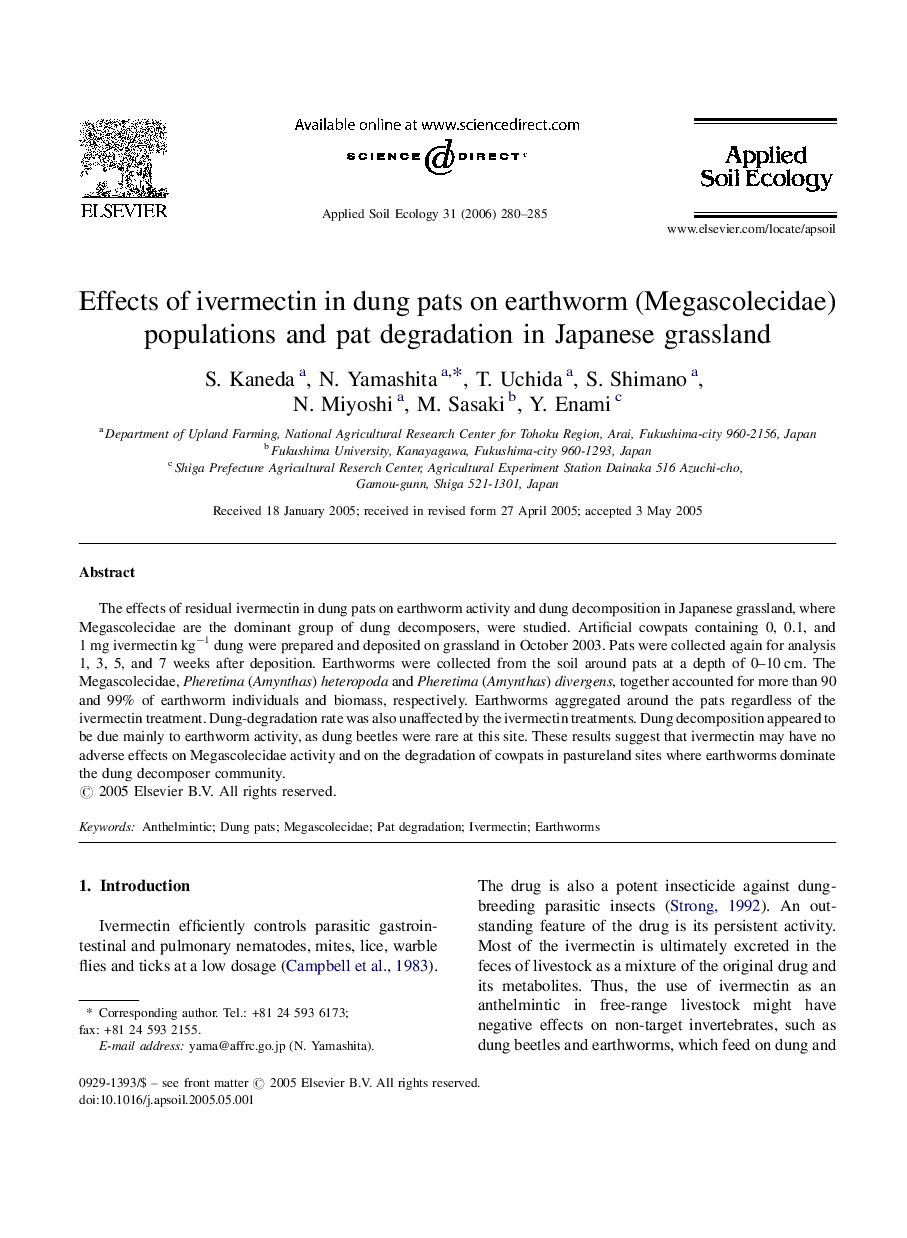| Article ID | Journal | Published Year | Pages | File Type |
|---|---|---|---|---|
| 4383462 | Applied Soil Ecology | 2006 | 6 Pages |
The effects of residual ivermectin in dung pats on earthworm activity and dung decomposition in Japanese grassland, where Megascolecidae are the dominant group of dung decomposers, were studied. Artificial cowpats containing 0, 0.1, and 1 mg ivermectin kg−1 dung were prepared and deposited on grassland in October 2003. Pats were collected again for analysis 1, 3, 5, and 7 weeks after deposition. Earthworms were collected from the soil around pats at a depth of 0–10 cm. The Megascolecidae, Pheretima (Amynthas) heteropoda and Pheretima (Amynthas) divergens, together accounted for more than 90 and 99% of earthworm individuals and biomass, respectively. Earthworms aggregated around the pats regardless of the ivermectin treatment. Dung-degradation rate was also unaffected by the ivermectin treatments. Dung decomposition appeared to be due mainly to earthworm activity, as dung beetles were rare at this site. These results suggest that ivermectin may have no adverse effects on Megascolecidae activity and on the degradation of cowpats in pastureland sites where earthworms dominate the dung decomposer community.
